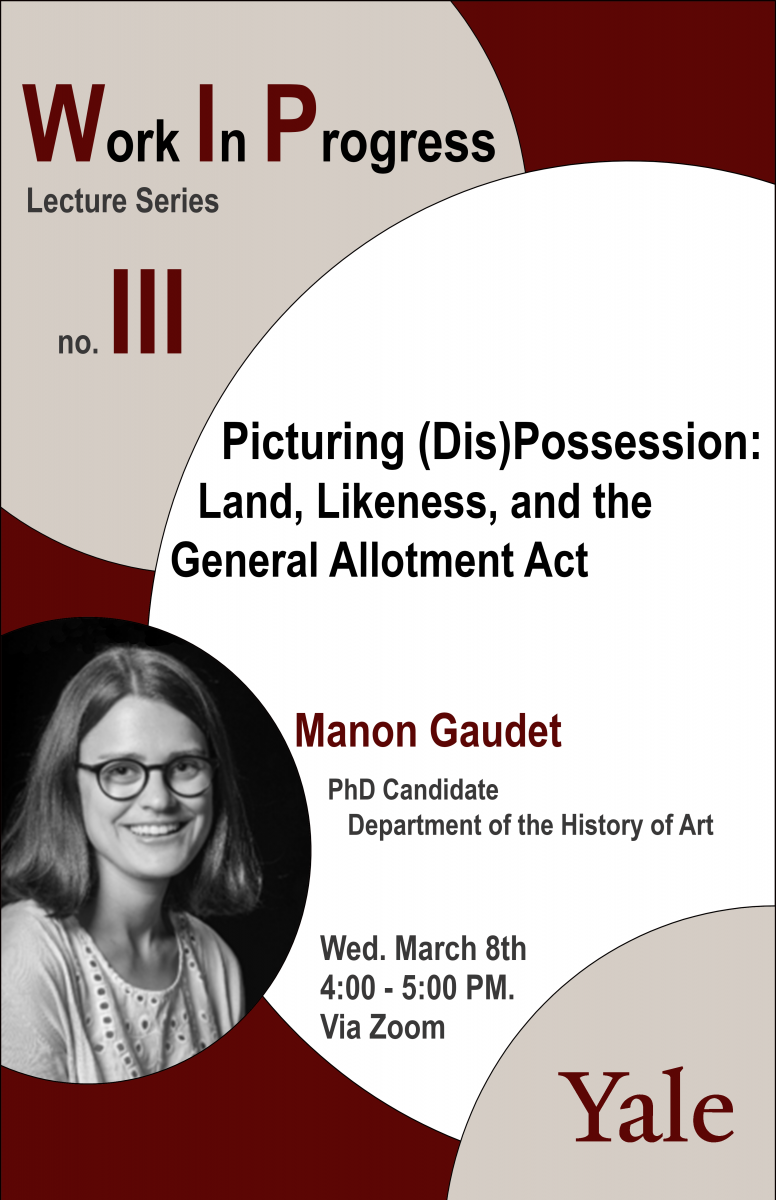Work in Progress by Manon Gaudet
We are glad to announce that the first WiP of this semester will feature Manon Gaudet, a fifth year student in our program who studies 19th and 20th century North American art with a particular interest in the on-going impacts of settler-colonialism and intercultural exchange. Her dissertation will critically examine how a land-based, property logic permeates 20th century visual culture and how settler artists and designers upheld and visually reproduced the dispossession of Indigenous land.
Manon’s talk will take place on Zoom on Wednesday (March 8) at 4PM. Her talk is titled “Picturing (Dis)Possession: Land, Likeness, and the General Allotment Act,” and an abstract is included here:
In 1911, the Department of the Interior released a poster advertising “Indian Land For Sale” under the rubric of the Dawes Severalty (or General Allotment) Act. Between 1887 and 1934 the policy dispossessed over ninety million acres of land from Indigenous peoples in the United States. Central to the poster is a 1905 photograph of an Ihaƞktoƞwaƞ Dakota Oyáte man taken by the Bureau of American Ethnology in Washington, D.C. While the poster is often reproduced as an illustration of the Dawes Severalty Act, it is little-studied as a piece of visual evidence in its own right. This talk examines the poster as an original work of graphic design, as a rhetorical vehicle, and as an afterlife for a diplomatic genre of ethnographic photography that flourished from the mid-nineteenth to early twentieth century. It asks whom the poster depicts, under what circumstances his photograph was taken, and what work his image does in dialogue with the poster’s text and data. In so doing, it seeks to answer a central question: why did the makers of the poster insist that the land made available for sale was “Indian,” and why use portraiture to picture land?

